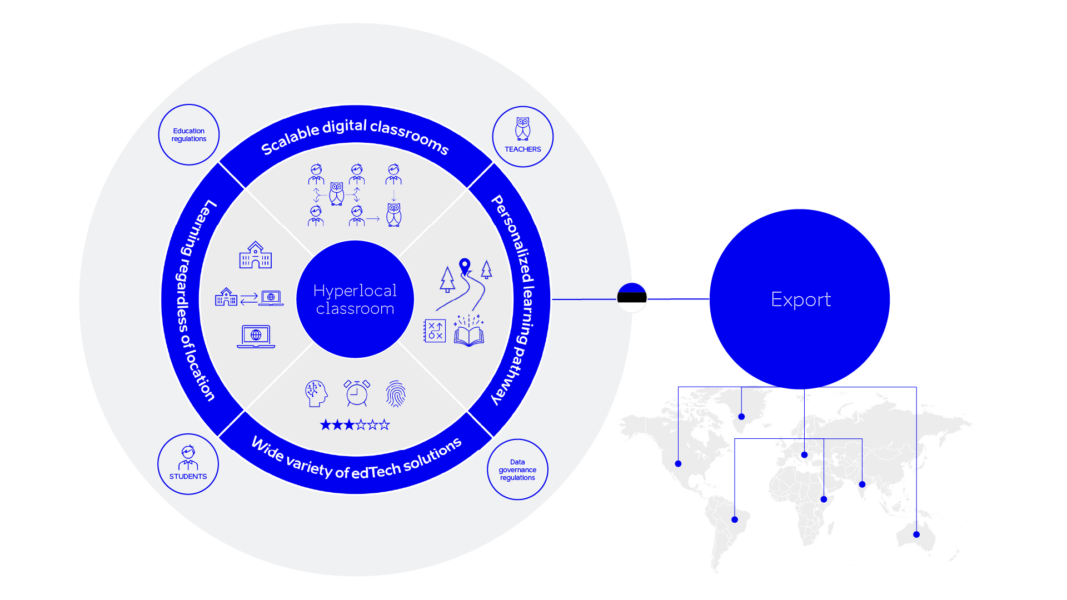What?
We can relieve the education crisis created by the shortage of teachers, and increase personalised learning for students.
For existing teachers, it is the use of technology that would allow them to extend the impact of their teaching beyond just one classroom. Technology enables us to scale learning and impact while making the system more dynamic and rich in choices. Students are already embracing self-directed and online learning: according to Eurostat, 39% of European 16-24 year-olds participated in an online course in 2021, a threefold increase from 2019.
However, there is an obstacle. Schools and universities do not have a suitable curriculum, systemic knowledge, or a safe environment to test possibilities for introducing new solutions.
How?
Within the experiment in Accelerate Estonia we aim to prove that education can be scaled. A scalable education system enables personalised education, enabling students to choose what, when and with whom they are learning. The Estonian Ministry of Education and Research is already working on it. However, systemic change will also require a change in public perception and the funding system of education.
We have developed a high school course in the field of social studies to be taught to a large number of students via distance learning. The course was developed by professional teachers and educational technologists to methodologically be as interactive and social as possible to ensure the most effective learning.
Hence, our experiment will consist of distance learning courses to prove that high quality education can be delivered even at scale. To prove that, we will conduct a national pilot in Estonia, carrying out social studies courses from September until December 2022, involving 10 schools and more than 300 students. Throughout the pilot and at the end of the course we will measure the quality and results, to see if we can prove our hypothesis that it’s possible to conduct quality studies with one teacher in 10 different schools.
Our long term goal is to create a framework for formal acceptance and appropriate funding from the public sector for different learning methods. The aim is to become the first country in the world to enable personalised education as a public system, formally accepting all different kinds of learning methods and environments.

What does this mean for Estonia?
Estonia is already recognised as one of the leading countries in terms of education and e-governance. Now it is time to truly implement this technology also in the education system, enabling rapid increase in efficiency and better use of the funds.
Becoming the first country to recognize and utilize all learning methods would empower the students to take the lead in their general education. That would not only create a new paradigm in the education systems but would also give a huge head start to Estonian educational innovation to set an example and possible framework and concept to reach the same level of efficiency.



